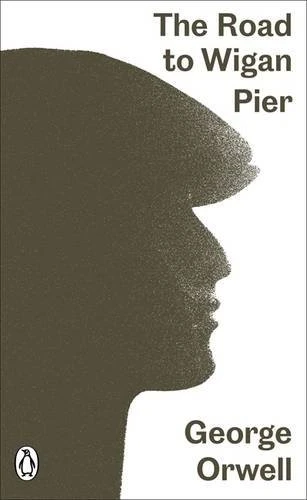The Road to Wigan Pier
(Author) George OrwellA searing account of George Orwell's observations of working-class life in the bleak industrial heartlands of Yorkshire and Lancashire in the 1930s, The Road to Wigan Pier is a brilliant and bitter polemic that has lost none of its political impact over time. His graphically unforgettable descriptions of social injustice, cramped slum housing, dangerous mining conditions, squalor, hunger and growing unemployment are written with unblinking honesty, fury and great humanity. It crystallized the ideas that would be found in Orwell's later works and novels, and remains a powerful portrait of poverty, injustice and class divisions in Britain. Published with an introduction by Richard Hoggart in Penguin Modern Classics. 'It is easy to see why the book created and still creates so sharp an impact ... exceptional immediacy, freshness and vigour, opinionated and bold ... Above all, it is a study of poverty and, behind that, of the strength of class-divisions' Richard Hoggart
George Orwell
George Orwell, born Eric Arthur Blair in 1903, was an English novelist, essayist, journalist, and critic. He is best known for his works "Animal Farm" and "Nineteen Eighty-Four," which are both powerful critiques of totalitarianism and authoritarianism. Orwell's writing style is characterized by clarity, precision, and a sharp wit, making his works accessible and thought-provoking for readers.
Orwell's contributions to literature include his exploration of political and social issues, as well as his commitment to truth and honesty in writing. His works have had a lasting impact on the dystopian and political fiction genres, influencing countless authors and thinkers. "Nineteen Eighty-Four" in particular has become a classic of modern literature, with its portrayal of a bleak and oppressive future society resonating with readers around the world. Orwell's legacy as a writer and social critic continues to be celebrated and studied today for its enduring relevance and insight.

